A Sampling of our featured speakers….
Scroll down to see more, click on the name for more details

The global context for decarbonization
JEFFREY SIMPSON - Canada's Leading National Affairs Correspondent
Jeffrey Simpson is the most decorated journalist in Canada. An Officer of the Order of Canada, he also received seven honorary doctorates and numerous national writing awards, including the Governor-General’s Prize and the Donner Prize for the best book on public policy, the National Newspaper Award (twice) and the National Magazine Award. He also won the Hyman Soloman Award for public policy journalism, the Arthur Kroeger Award for contributions to public policy, and the Charles Lynch prize for coverage of national politics.
For 32 years, Simpson’s national affairs column in The Globe and Mail was essential reading for decision-makers and informed Canadians across the country. In that column, and in hundreds of public speeches and lectures, he ranged over an enormous number of domestic and international issues, from politics to health-care, from climate-change to economic and fiscal policy, to Canadian-American relations and the Middle East. In addition to making presentations at conferences here and abroad, he moderated many conferences. He retired from column-writing at The Globe and Mail in mid-2016, but continues to lecture and speak on many of the leading issues of the day.
He has written eight books, including Hot Air: Meeting Canada’s Climate Change Challege, numerous magazine articles, appeared regularly on television in English and French, and was a guest lecturer at such universities as Oxford, Edinburgh, Harvard, Princeton, Brigham Young, California and more than a dozen universities in Canada. He has been a John S. Knight Fellow at Stanford University in Palo Alto, California; a Skelton-Clark Fellow and Brockington Visitor at Queen’s university; a distinguished visitor at the University of Alberta; and a member of the Georgetown University Leadership Seminar.
He has been a member of the board of trustees of Queen’s University, the board of overseers of Green, College, University of British Columbia; the advisory councils of the Robarts Medical Research Institute and the Richard Ivey School of Business at Western university; and the editorial board of the Queen’s Quarterly. He was vice-chairman of the City of Ottawa Library Board and was awarded the William Watkinson Award for outstanding contributions to the Canadian library community.
Simpson has taught as an adjunct professor at the Queen’s University Institute of Policy Studies and the University of Ottawa Law School. He is senior fellow at the University of Ottawa
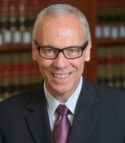
Engineering the climate: opportunities, risks, and governance
EDWARD A. PARSON - Director Emmett Inst. on Climate Change & Environment University of California
Edward A. (Ted) Parson is Dan and Rae Emmett Professor of Environmental Law and Faculty Co-Director of the Emmett Institute on Climate Change and the Environment at the University of California, Los Angeles. Parson studies international environmental law and policy, the role of science and technology in policy-making, and the political economy of regulation. His articles have appeared in Science, Nature, Climatic Change, Issues in Science and Technology, the Journal of Economic Literature, and the Annual Review of Energy and the Environment. His most recent books are A Subtle Balance: Evidence, Expertise, and Democracy in Public Policy and Governance, 1970-2010 (McGill-Queens University Press, 2015), The Science and Politics of Global Climate Change (with Andrew Dessler) (2nd ed. Cambridge, 2010), and Protecting the Ozone Layer: Science and Strategy (Oxford, 2003), which won the 2004 Sprout Award of the International Studies Association and is widely recognized as the authoritative account of the development of international cooperation to protect the ozone layer.
Parson has led and served on multiple advisory committees, for the National Academy of Sciences, the U.S. Global Change Research Program, and other national and international bodies. He was formerly Joseph L. Sax Collegiate Professor of Law, Professor of Natural Resources and Environment, and Professor of Public Policy at the University of Michigan, and spent twelve years on the faculty of Harvard’s Kennedy School of Government. In addition to his academic positions, Parson has worked and consulted for the White House Office of Science and Technology Policy, the Office of Technology Assessment of the U.S. Congress, the Privy Council Office of the Government of Canada, the U.N. Environment Program, and the International Institute for Applied Systems Analysis (IIASA). He holds degrees in physics from the University of Toronto and in management science from the University of British Columbia, and a Ph.D. in Public Policy from Harvard. In former lives, he was a professional classical musician and an organizer of grass-roots environmental groups.

Canadian policy responses to the Paris agreement
STEPHANIE CAIRNS - Principal Wrangella Consulting
Stephanie has worked on environment, economy, and fiscal policy research initiatives for 25 years. She now directs the Cities and Communities program at the Smart Prosperity Institute (formerly Sustainable Prosperity), Canada’s leading source of research and policy insights for a stronger, cleaner economy, after many years as their Director of Carbon Pricing and Senior Advisor. She served on the 2015 Panel that drafted Alberta’s new climate change policy, and has also been a consultant or board member with Canada’s leading environmental think tanks (IISD, Pembina, NRTEE, CIFAR), and a policy advisor in the Prime Minister’s Office. She graduated from the University of Toronto and from the Institute for Industrial Environmental Economics at Lund University, Sweden.
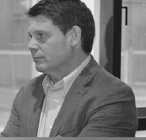
Negative emissions technologies
ADRIAN CORLESS - CEO Carbon Engineering Inc.
Adrian has served as CEO at Carbon Engineering since 2013, where he has led the team that designed, built and tested the world’s first scalable atmospheric CO2 capture pilot plant. Adrian previously served at Plug Power as Chief Technology Officer, successfully leading its industrial fuel cell product development and commercialization efforts. Adrian also spent a year in France supporting the creation of a JV between Plug Power and Air Liquide to bring the product line to Europe. Adrian received a Master’s Degree from the University of Victoria and is a registered P.Eng in the Province of British Columbia.
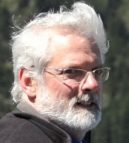
The role of forests and forest products in decarbonization
WERNER KURZ - Senior Research Scientist, Canadian Forest Service
Werner Kurz. Dr. Werner Kurz is a Senior Research Scientist at the Canadian Forest Service (Natural Resources Canada) in Victoria, BC. He leads the development of Canada’s National Forest Carbon Monitoring, Accounting and Reporting System, the Carbon Budget Model of the Canadian Forest Sector (CBM-CFS), and the Forest Carbon Management Project of the Pacific Institute for Climate Solutions. His research focuses on carbon dynamics in forests and harvested wood products, as affected by natural and human disturbances as well as climate change. He investigates the opportunities of the forest sector to contribute to climate change mitigation. Dr. Kurz co-authored six reports of the Intergovernmental Panel on Climate Change (IPCC). He serves as adjunct professor at the University of British Columbia and at Simon Fraser University. He obtained an honorary doctorate from the Swedish Land Universities (SLU).

Captured carbon as feedstock for synthetic materials
BRANT PEPPLEY - Director Sustainable Energy Eng'g Queen’s University Labs
Brant has worked in hydrogen and fuel cell research for more than 30 years. In 1986 he tested the very early Ballard Fuel Cell Stacks at the Royal Military College of Canada as the lead engineer in third party validation trials. It was immediately clear to Brant that the provision of hydrogen was the key issue and this led to a PhD from the Royal Military College in 1997 for his work on hydrogen production by the steam reforming of methanol. In 2007, he was awarded the Canada Research Chair (Tier I) in Fuel Cells (2007-2014) at Queen’s University where he was the founding director of the Fuel Cell Research Centre. Recently the Fuel Cell Research Centre was relocated to main campus and has become the Sustainable Energy Engineering Queen’s University Laboratories (SEEQUL). The rebranding was motivated by a diversification in the topics of research which Brant and his colleagues are now pursuing. Although hydrogen still is involved in most of the work the underlying motivation for using hydrogen has a much wider scope and is driven by carbon emissions reduction. Current research activities include producing synthesis gases by the co-electrolysis of CO2 and steam that can be used as a feedstock to produce industrial chemicals, synthetic fuels and materials for solid composites. Other research areas involve the synthesis of new support materials that will reduce the cost of the electrocatalysts used in PEM electrolysers.

The electric city in a zero carbon world
CHRIS KENNEDY - President, International Society for Industrial Ecology
Chris applies principles of Industrial Ecology to challenges of developing sustainable cities and global infrastructure systems. Much of his work has involved the study of urban metabolism – the energy and material flows through cities – which underlies greenhouse gas emissions and other environmental impacts of cites. He also draws upon qualifications in Civil Engineering, Economics and Business to advise on policies and planning for sustainable infrastructure. Clients have included the governments of Canada, China, Saudi Arabia; UAE, and the UK, as well as the World Bank, Ontario Ministry of Finance, and others. In 2011/12, he was seconded to the OECD in Paris, to work on Cities, Green Growth and Policies for Encouraging Investment in Low Carbon Infrastructure and was a visiting professor at Oxford University and ETH Zürich. Currently he serves as President of the International Society for Industrial Ecology, is a Senior Fellow at the Global Cities Institute and author of The Evolution of Great World Cities: Urban Wealth and Economic Growth. He is the founding Chair of the newly formed Civil Engineering program at UVic.

Organizing for High Impact Results
CHRIS REID - CEO Institute for Breakthrough Energy Technologies
Chris is currently the Managing Director and founder of IBET – the Institute for Breakthrough Energy Technology as well as a founding Executive in Residence at Foresight Cleantech Accelerator, Canada’s first clean technology incubator. He serves on several boards including Chairman of Rotoliptic Technologies and as an elected board member of the Working Opportunity Fund. Prior to this, Mr. Reid worked with Plug Power as General Manager of the Motive Power Division. He was responsible for directing the Motive Power Division as it commercialized its fuel cell power products for material handling customers.
Prior to joining Plug Power, Chris was co-founder and Chief Executive Officer of Cellex (acquired by Plug Power) since it was incorporated in 1998. Cellex was a pioneering company that introduced fuel cells products into the material handling industry. Before Cellex, he was the Managing Partner in General Exergy Inc., an energy technology consulting firm. From 1995 to 1997, he worked as a research manager for a fuel cell development program at the Institute of Integrated Energy Systems sponsored by British Gas and Ballard Power Systems Inc. Before that, Chris worked developing cryogenic technology for an early stage venture and as a plant engineer for a major manufacturing company.
Chris holds a Bachelor of Science degree in mechanical engineering from the University of Manitoba and a Master of Applied Science degree from the University of Victoria.
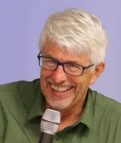
News about mitigation and adaptation efforts from the world of behavioural science
Robert Gifford - President, Environmental Psychology, IAAP
Robert Gifford is an environmental psychologist who is Professor of Psychology and Environmental Studies at the University of Victoria. He is a Fellow of the American Psychological Association, the Canadian Psychological Association, and the Association for Psychological Science, and is the recipient of a Career Award from the Environmental Design Research Association. Professor Gifford is the author of over 135 refereed publications and book chapters and five editions of Environmental psychology: Principles and practice. His new book (as editor) is Research methods for environmental psychology. He has been the editor of the Journal of Environmental Psychology for 14 years, has served as President of the Environmental Psychology division of the International Association of Applied Psychology, APA’s Population and Environment Division, and CPA’s environmental section.

Renewable Energy Cities
MATT HORNE - Climate Policy Manager, City of Vancouver
Matt Horne is the City of Vancouver’s climate policy manager. He is responsible for delivering on the City’s commitment to have 100% of the energy used in Vancouver come from renewable sources before 2050. He also advises senior management, and mayor and council on climate change policy issues. Prior to joining the City, Matt worked for the Pembina Institute helping to advance climate change policy in B.C. and across Canada. He has a Master of Resource Management degree from Simon Fraser University, and a Bachelor of Industrial Engineering degree from Dalhousie University.
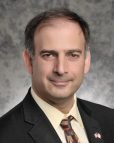
The Future of Fossil Fuels
JULIO FRIEDMANN - Principal Deputy Assistant Secretary for the Office of Fossil Energy, at the U.S. Department of Energy
Dr. Friedmann’s portfolio includes R&D and programs in Clean Coal and Carbon Management, Oil and Gas systems, international engagements in clean fossil energy, and inter-agency engagements within the US government. His earlier appointment as Deputy Assistant Secretary for Clean Caol and Carbon Management focused on clean coal and carbon capture, utilization and storage.
In his prior appointment as Cbhief Energy Technologist for Lawrence Livermore National Laboratory, Dr. Friedmann’s research included smart grid and energy systems analysis, conventional and unconventional hydrocarbons, CCS, geothermal power, renewable power prediction and integration, and supercomputing applications to energy. Earlier, he worked for five years as a senior research scientist at ExxonMobil and as faculty at the University of Maryland. Dr. Friedmann has a Bachelor of Science and Master of Science from the Massachusetts Institute of Technology and a Ph.D. in Geology from the University of Southern California